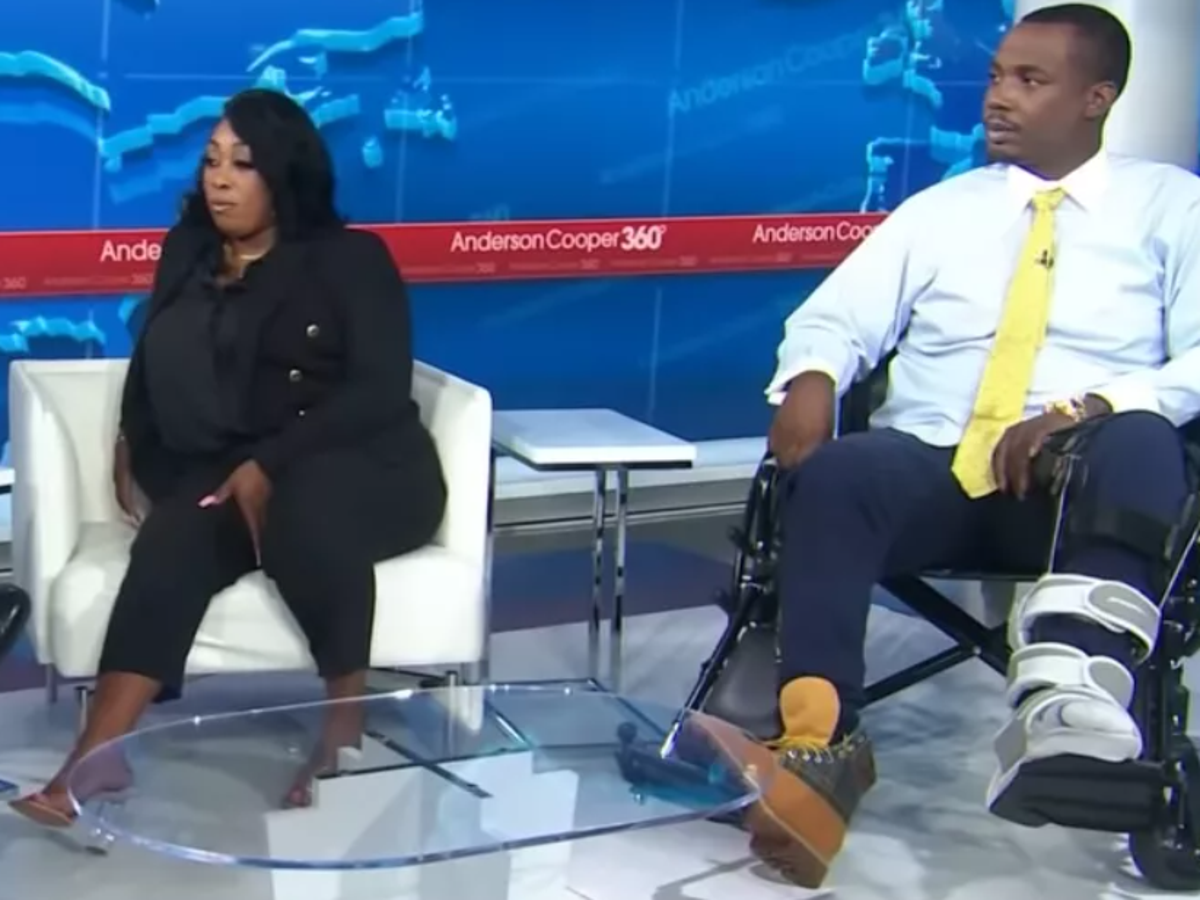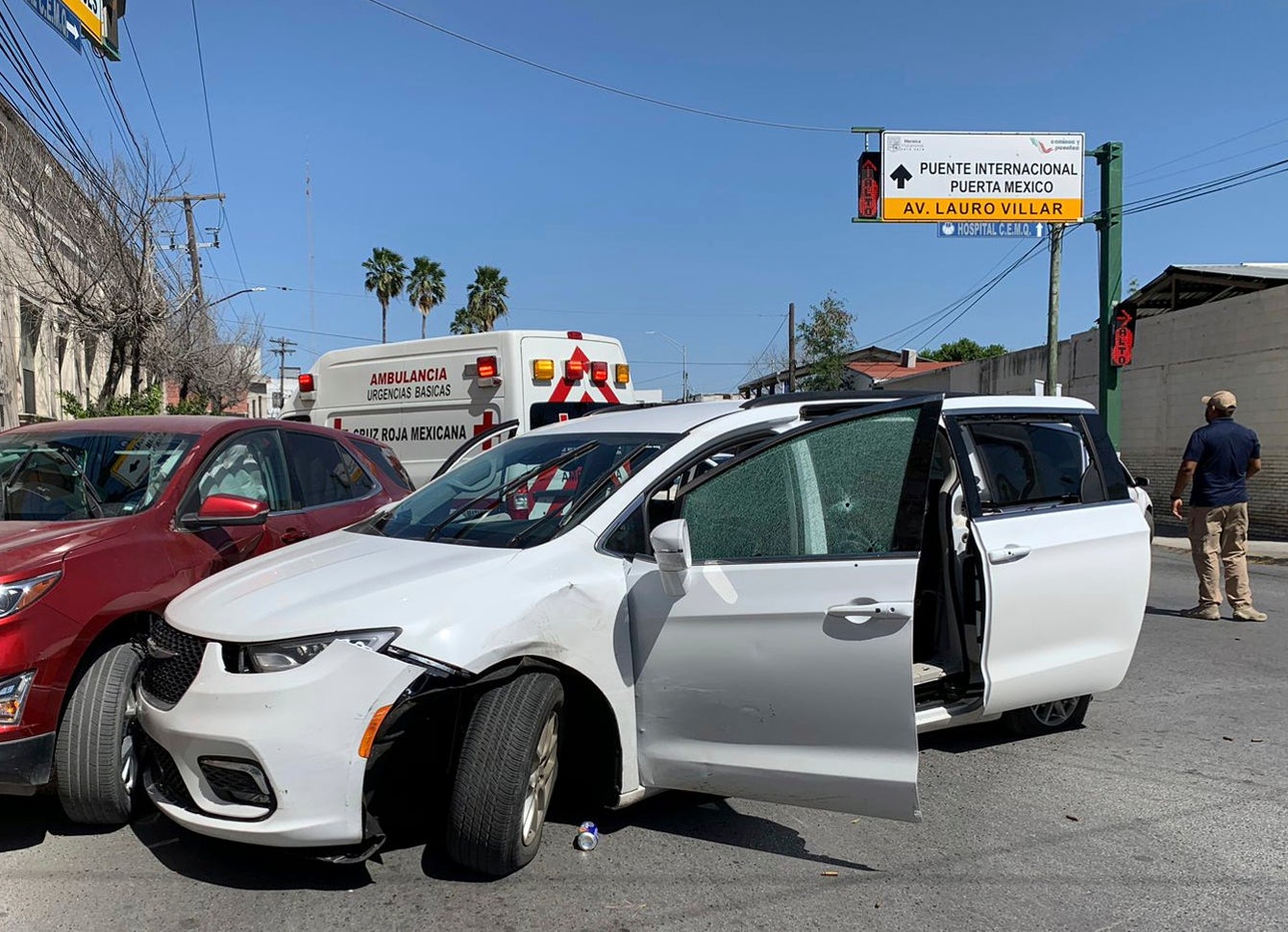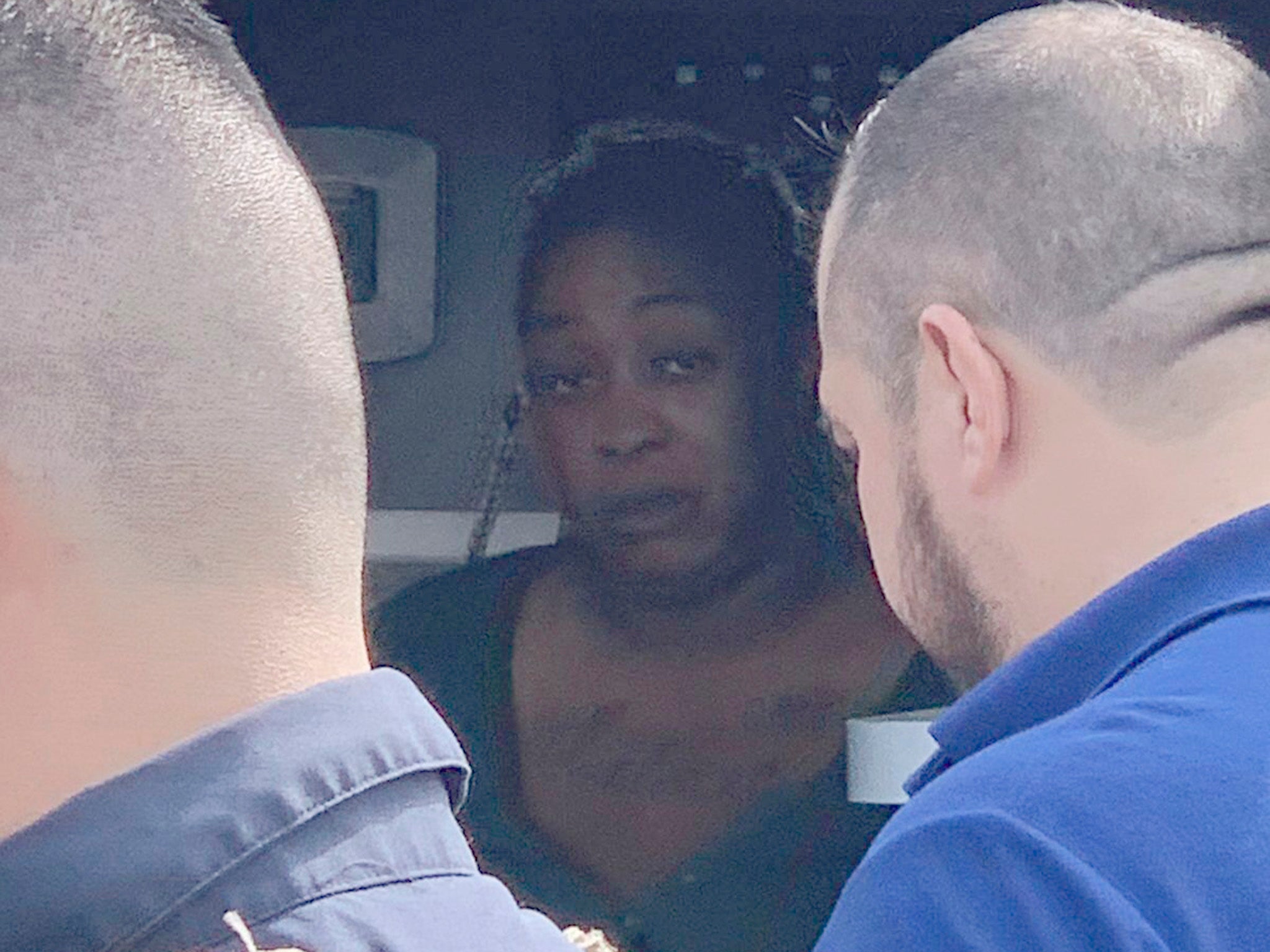
Two Americans who were kidnapped by members of a Mexican drug cartel in March have spoken out for the first time about their horrific ordeal at the hands of their captors, who shot dead two of their friends and abducted them from a busy street.
LaTavia Washington McGee and Eric Williams had driven from South Carolina with their friends Shaeed Woodard and Zindell Brown and crossed into Mexico via Brownsville, Texas, on the Gulf Coast so that Ms McGee could undergo a tummy tuck operation.
Arriving in the border city of Matamoros, Tamaulipas, on Friday 3 March, their white minivan was fired upon by cartel gunmen, who then removed the passengers to another vehicle and drove off. The entire scene was filmed by an onlooker from a nearby window and posted to social media.
The following Tuesday (7 March), Ms McGee and Mr Williams were found in a stash house in a rural area east of Matamoros called Ejido Longoreno on the way to a beach known as Playa Baghdad, alongside the dead bodies of Woodward and Brown.
Speaking about their experiences for the first time to CNN’s Anderson Cooper, Ms McGee and Mr Williams, still recovering from his injuries in a wheelchair with his left leg in a brace, told the host that Brown had spotted the danger first after they had turned down a sidestreet in Matamoras and been honked at by a car.
“Zindell was in the back seat, he said ‘don’t stop’, he saw a gun,” Ms McGee remembered.
When the other car blocked their path and began firing on them, Woodward and Brown attempted to get out of the van and both were gunned down.
“When I jumped out on the driver’s side, that’s when I was shot in both legs,” Mr Williams said, becoming emotional as he recalled noticing his friend’s injuries: “I could see Zindell’s back. He was hit two times and big chunks of meat was gone.”
Still alive but badly wounded in the back of the truck as the kidnappers took them, Woodward told Mr Williams: “‘I love y’all, I’m gone,’ and he died right there. It was the last thing he said.”
The gangsters involved wore red plastic “Diablo” masks to conceal their identities and took their prisoners at gunpoint first to a house and then to a clinic for medical treatment.
“They put my leg on a two-by-four and then they stitched it up. No pain medicine or nothing,” Mr Williams said.
Ms McGee recalled that, during their imprisonment, one of the captors watched the viral video of their kidnapping on his phone and showed it to her on request.

She said: “I could remember the sound of that day, of when it happened, I could remember the gunshots, the noise, and I heard it and I asked him, I said ‘Excuse me, is that us?’ and he said, ‘Yes’. I said, ‘Can I see it?’ And he was like, hold on, and he turned the phone around and showed the video of us being kidnapped.”
Ms McGee told the host she cried as she watched the footage and thought, “I’m never going home,” before taking consolation in the thought that its existence at least meant the wider world was aware of their plight and that they would therefore be looked for.
The pair also reported that their captors threatened Ms McGee with sexual violence and urged her and Mr Williams to have sex with one another for their entertainment. They had refused, falsely claiming to be brother and sister and that Ms McGee was pregnant in order to deter them.
Although the captives did not know where they were, Ms McGee described their being regularly moved around to different locations over the course of their four-day imprisonment, suggesting that the cartel members were listening to police scanners for clues that investigators were closing in and acting accordingly to evade the authorities.
“I was thinking we would never be found because they had police scanners and all that type of stuff in their truck… They knew what was going on. They always were a step ahead. So I was like, they’re never going to find us like this,” Ms McGee said.

On the Saturday night (4 March), she said a dark figure had appeared in a doorway. The figure woke them up to unexpectedly apologise for the killing of Woodward and Brown and told them a senior member of the cartel had “made the wrong call” while “high and drunk”.
He told them he was “fighting with my boss” to secure their freedom and conceded there was nothing he or his accomplices could do to repay them for their losses other than try to get them home to their families.
“When I give you up, I’m going to leave too because they’re going to kill me for letting you go,” the man told them.
He returned on Monday (5 March) to load the two captives, both blindfolded, into the back of a truck, placing the dead bodies of Woodward and Brown on top of the wounded Mr Williams to hide him from view.
After many hours of driving around to avoid the police or other cartel members, the Americans were finally delivered to the stash house where they were ultimately found.
Incredibly, after Ms McGee and Mr Williams had been rescued, the Gulf drug cartel issued a letter of apology to the Associated Press, suggesting that a rebel splinter group within its organisation known as the Scorpions had been responsible and acted against the group’s rules of “respecting innocent people’s life.”
The letter apologised to residents of Matamoros who witnessed the shooting, to the families of the American victims and of a Mexican woman who died after she was caught in the crossfire.
A picture of the five alleged suspects face down on the pavement with their hands tied was also shared with the AP. They were later found by Mexican law enforcement.







